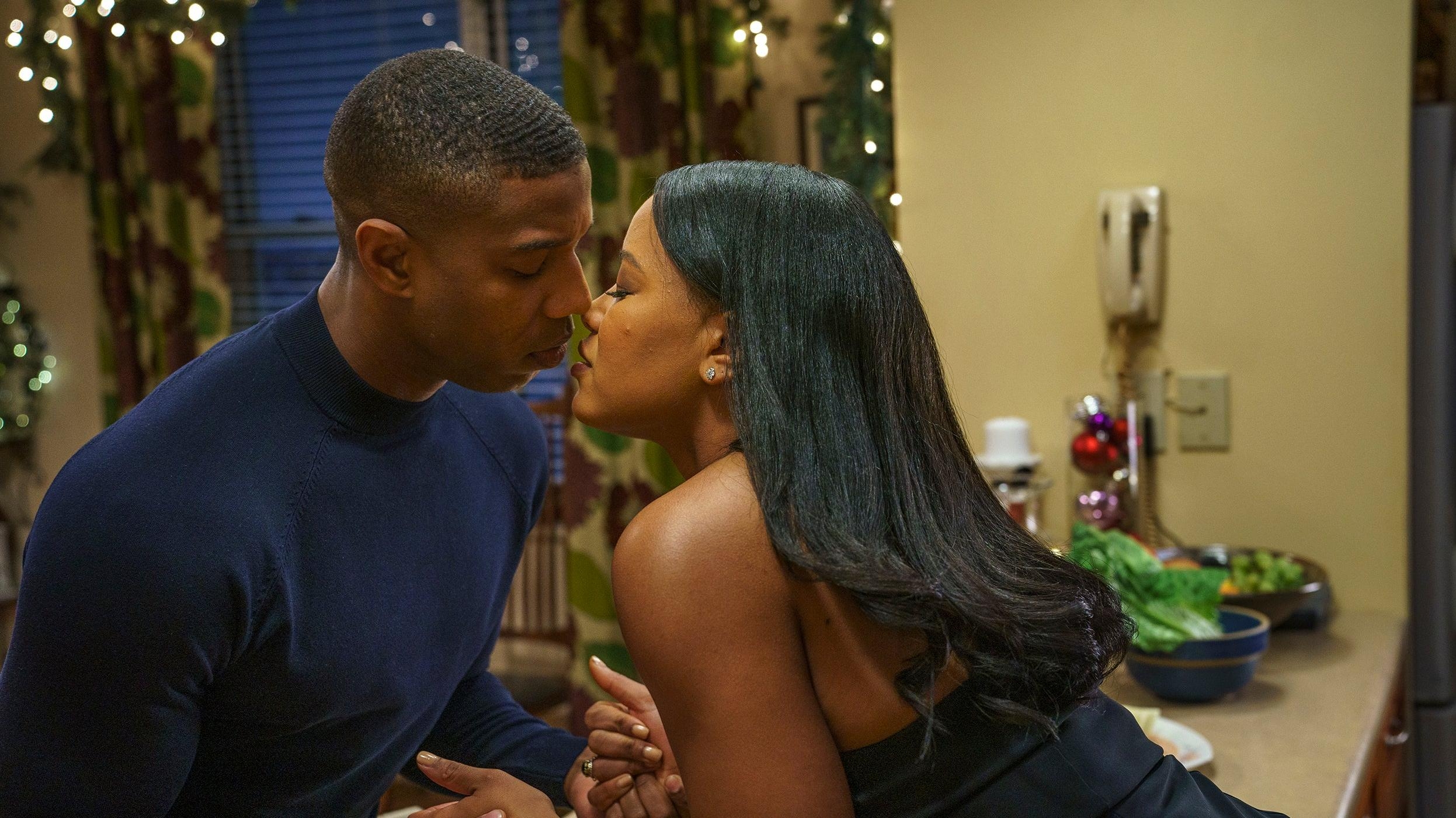Denzel Washington directs Michael B. Jordan in the cloying melodrama A Journal For Jordan
Washington moves from August Wilson to morbid memoir in this Christmas Day dud

Denzel Washington’s last directorial outing, Fences, was an almost foolproof project, given its source material: a classic of American theater by one of the country’s greatest playwrights, August Wilson. The same can’t be said of A Journal For Jordan, which marks the first time that this most charismatic of actors has stayed entirely behind the camera for a project. Adapted from a 2008 memoir by former New York Times writer and editor Dana Canedy, it trades in cloying sentimentality and romance, the gooey melodrama done no favors by Washington’s stiff, anonymous direction.
At the film’s center is 1st Sgt. Charles Monroe King (Michael B. Jordan, disarmingly clean-shaven), a Mr. Right who first meets up-and-coming journalist Dana (Chanté Adams) while he’s putting up a picture in her parents’ living room. As far as A Journal For Jordan is concerned, he’s the perfect guy: A man in uniform who appreciates art (especially the French impressionists), respects women, knows it’s manly to cry, and loves his country. The only thing that’s really wrong with him is that he happens to be dead—not a literal ghost, mind, but in the sense of the story being told in the past tense after his death, via a clumsy assemblage of flashbacks, flash-forwards, and voiceover.
These rudimentary elements of collage aside, the plot is straightforward. Dana and Charles first meet in 1998 while she’s visiting her family from New York. He insists on calling her “ma’am” and on referring to himself as “1st Sgt. Charles King.” Otherwise, they hit it off. (In the movie’s only fun period detail, the two have their first long chat over cans of Brisk Iced Tea.) From there, they begin a long-distance courtship over the phone, and he starts visiting her in the Big Apple. Things get progressively more serious, relationship-wise, but the only source of conflict remains Charles’ unwavering commitment to his men: He cares about them just a little too much, to the point of missing dates and, eventually, the birth of his and Dana’s son, Jordan. But even this is presented as a testament to his selfless good character.
Is he, in this respect, a sacrificial figure? The one thing A Journal For Jordan gets right about the time-tested tearjerker formula is the unabashed morbidity; it never stops reminding us, through framing devices (including the journal of the title) and scenes of an older Dana and a tween Jordan, that Charles is going to die. The question of where and how is left unanswered until the end, but given his profession and the approximate period in U.S. military misadventure, it’s not hard to make an educated guess.
Take his incessantly foreshadowed demise out of the equation, and what you’re left with is a generic romance, complete with even more generic New York best friends, that never works as the opposites-attract scenario it’s partly intended to be. (Who could imagine a New York Times reporter falling for military charm—in the 2000s, no less?) Death defines Charles’ character. It is arguably the thing that, from the movie’s point-of-view, makes him so perfect. Wouldn’t we all be so lucky, it asks, to have such a great dead guy in our lives?
The generous might call this a gender-flipped variation on the cinematic and literary tradition of mourned female beauties, or even an inversion of the male gaze; the film’s only memorable image, after all, is a screen-filling close-up of Charles’ bare posterior. But those stories usually involve a dimension of obsession that’s obviously the opposite of the maudlin feelings A Journal For Jordan is meant to inspire. It’s about people being very happy and then very sad, but lacks the stylistic extremes necessary to make those emotions intoxicating. Anyone who doesn’t start bawling at the very idea of a handsome dead dad-soldier will just be bored.